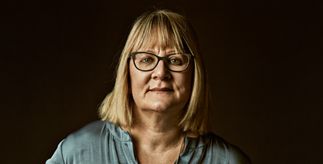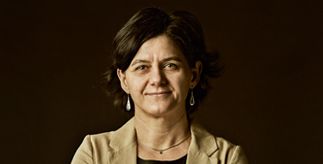Birmingham has a long history of researching ancient texts, some of which have only recently been rediscovered. Using specialist expertise and new technologies, our academics have examined what these texts say, put them in context and discovered what they mean to our world today.

Birmingham Heroes: Dr Hugh Houghton talks ancient texts
ITSEE
A world leading hub for this activity is The Institute for Textual Scholarship and Electronic Editing (ITSEE). It was established in 2005 on the premise that computer methods were becoming a fundamental component of research with ancient manuscripts.
The team use digital tools to locate and view original materials, ranging from single manuscripts to multiple versions of a text, such as a verse from the Bible. They transcribe them into electronic form, use technology to reveal text that has been obliterated, and compare and analyse different examples of text to arrive at a more definitive version.
The software applied in Birmingham is now used in institutions across the world. It has also pioneered the use of existing technologies in novel ways such as applying software originally developed for the decoding of DNA in analyses of multiple related texts.
As well as providing vital historical, religious and cultural sources, ancient religious texts often have a social and political impact as these earlier versions can be used to challenge later interpretations championed by extremists of all faiths.
Beyond the Department of Theology and Religion, academics at Birmingham undertake outstanding research on manuscripts from antiquity to the early modern period in History and Cultures, Languages, and English Literature.
Professor Hugh Houghton’s area of specialism is the text of the New Testament in Latin and Greek. He uses and develops electronic tools to create digital editions of individual manuscripts and Biblical books which will provide the basis for future generations of scholarship.
He has led several research projects, including ones that have identified new witnesses to the earliest Latin translations of the Gospels and translated the rediscovered 4th century Commentary on the Gospels by Fortunatianus.
He is currently working on two projects which will bring to life the oldest manuscript of the Greek New Testament by drawing on early Christian commentaries written alongside Greek New Testament texts.
Birmingham Heroes: Professor Charlotte Hempel talks ancient texts
Birmingham Heroes: Dr Alba Fedeli talks ancient texts
The Dead Sea Scrolls
The Dead Sea Scrolls found in eleven caves on the north western shore of the Dead Sea, also known as the Qumran Texts, are the focus of Professor Charlotte Hempel’s work. Their discovery in the late 1940s revealed remains of almost a thousand ancient Jewish manuscripts. They are shedding fresh light on a movement devoted to the study of law in the Second Temple Period and the Jewish background of Jesus and his earliest followers. They are therefore an important source to further our understanding of the New Testament. These Scrolls are also of tremendous importance for the history of Judaism since they shed light on the crucial two centuries at the turn of the era that precede the completion of Classical Jewish texts such as Mishnah and Talmud from 200-500 CE.
Professor Hempel is part of a global network of scholars who benefitted from access to the full corpus of the Scrolls, including all the unpublished material, in 1991. Her focus initially was on several texts that were previously entirely unknown and describe the life and organization of a movement. More recently she has explored the ways in which the scribal milieu behind the Scrolls shares much more with the circles behind the emerging Hebrew Bible/Old Testament than previously thought.
She is Executive Editor of the leading international journal Dead Sea Discoveries and a member of steering committee of the Qumran Section of the Society of Biblical Literature.
The Birmingham Qur’an
In 2011 Dr Alba Fedeli started studying for a PhD at Birmingham, supervised by Professor David Parker, after spending more than a decade studying early Qur’anic manuscripts in locations as diverse as Sana’a, Cambridge, Doha, Dublin and St. Petersburg.
During her studies at Birmingham she worked on the origins and history of the ‘Birmingham Qur’an’ manuscript. Her analysis of it indicated that it was extremely early, and she encouraged the Cadbury Research Library, which held the document, to have it carbon dated. The results placed it within two decades of the life of the Prophet Muhammad.
While studying for her PhD she also reconstructed the Qur'anic undertext of the Mingana-Lewis palimpsest held in the Cambridge University Library. This contains portions of two other early Qur'ans, probably copied in the seventh or eighth century, which were later overwritten. She painstakingly worked on digital images of the manuscript, removing the later writing and enhancing, reconstructing and editing the undertext
Dr Fedeli is now a postdoctoral fellow dividing her time between ITSEE and Bologna (FSCIRE), where she is continuing her work on the relationship and texts of early Qur'anic manuscripts.

Director of the Institute for Textual Scholarship and Electronic Editing

Professor of Hebrew Bible and Second Temple Judaism

Research Fellow FSCIRE, Bologna
Find out more